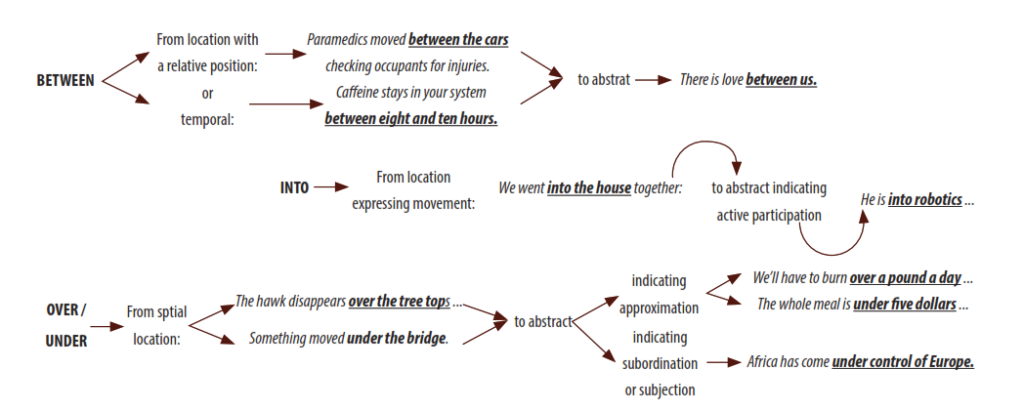Lígua Inglesa VI
Semana 1 – apresentação do curso
Prezados alunos e alunas,
Tudo bem? Espero encontrar todos e todas com saúde e em paz.
Boas-vindas. Parabéns por ter chegado até aqui! Sei dos obstáculos enfrentados e os sacrifícios empreendidos para se manter em uma universidade. Mas você venceu e, agora, quero te ajudar a continuar vencendo.
Eu sou o Professor Marcello de Oliveira Pinto. Estarei com vocês aqui nesta disciplina. Nesta apresentação, vou descrever um pouco o curso que você está iniciando e o que você lê aqui reverbera o que já comentamos em sala. Espero que ao conhecer o curso, você perceba a sua relevância e o quanto ele poderá ajudá-lo a enfrentar melhor os desafios da vida acadêmica.
Organização
A disciplina será ministrada em 15 aulas de acordo com o calendário da faculdade. Ao longo dos semestres, faremos os ajustes necessários para que o curso possa se adaptar ao seu contexto. Caso seja preciso fazer algum evento on-line o link será sempre este
meet.google.com/jqw-aebk-pfp
Recursos didáticos
o material do curso está aqui
Importante – para ativar e rever o conhecimento da língua que o curso demanda apresento algumas atividades de prática linguística que deverão ser feitas em paralelo ao conteúdo apresentado no curso.
Advanced Language Practice – (unidades: grammar 20, 21; words and phrases 1, 2)
Avaliação
Vocês serão avaliados da seguinte forma: Duas notas comporão sua média final (MF).
A primeira (N1) será composta pela soma das atividades que vocês farão ao longo do curso, totalizando 10 pontos.
A segunda (N2) será composta por uma atividade final, totalizando também 10 pontos.
A média final será a soma das duas notas e para aprovação imediata é preciso que essa média seja igual ou maior que 7 pontos.
importante: somente os alunos devidamente inscritos podem participar da disciplina. Caso você não esteja inscrito, por gentileza procurar a secretaria do seu curso. O docente não inclui ou faz a inscrição do aluno na turma.
Qualquer dúvida sobre as médias para aprovação, prova final, o que é o CR, calendário acadêmico e demais regulamentos, visitem o site da UERJ
Bom trabalho!
ementa
Prepositional Phrases
I – to warm it up
take a look at the picture below and describe what you see using prepositions

II – Prepositions again !!
To begin with, lets use our artistic skills. The sentences below can be understood in two ways. Please draw these possible meanings.
There is a party on Friday.
He is in love
That book is coming along
Observe the use of preposition in in the quotation below. what kind of experience is it making reference to, spatial, temporal, metaphorical?

the quotation above is from In Watermelon Sugar is an American postmodern post-apocalyptic novel by Richard Brautigan written in 1964 and published in 1968. Set in the aftermath of a fallen civilization, it focuses on a commune organized around a central gathering house which is named “iDEATH“. In this environment,

many things are made of watermelon sugar (though the inhabitants also use pine wood and stone for building material and fuel made from trout oil). The landscape of the novel is constantly in flux; each day of the week has a different colored sun which creates different colored watermelons, and the central building also changes frequently. The novel’s narrator, who is left unnamed, claims to be writing an investigative book on his experiences at iDEATH. Its first-person narrative is sparse and minimalist, granting the novel a detached and alien quality.
Now, time to work a bit before we advance
Advanced Language Practice – unidades grammar 20
And lets listen to a song!
Death is a place where the sun shines a different colour every day and where people travel to the length of their dreams. Rejecting the violence and hate of the old gang at the Forgotten Works, they lead gentle lives in watermelon sugar.
In Watermelon Sugar
Have fun at home!
Which day are you referring to? (To which day are you referring?)
Do you know who this book belongs to? (Do you know to who(m) this book belongs? )
Bill is the kind of guy you’d be happy to have a drink with (the kind of guy with whom you’d be happy to have a drink)
Still Prepositions
a. To begin, a song
Listen carefully. the singer is talking about a word. Which word is it?
If you want to follow the lyrics, check here
b. The complement element
Observe the sentences and tell which ones are not acceptable
1a I was pleased about our team winning the prize
1b I was pleased about that our team won the prize.
2a We were disappointed at not getting any news from you.
2b We were disappointed at not to get any news from you.
3a Have you any problem apart from where to stay?
3b Have you any problem apart from that to stay?
4a I don’t sleep nights for thinking of my daughter.
4b I don’t sleep at nights for thinking of my daughter.
5a Jean and Bill will have no choice but to send their children to another school.
5b Jean and Bill will have no choice but to sending their children to another school.
c. Practice
Advanced Language Practice:
words an phrases 8 (p.295 – pdf) exercise 1;
grammar 22 (p.151 -pdf) exercise 4
quick challenge!
The sentence that best preserves the meaning of the following excerpt “The intention is not to reject English, but to reconstitute it.” is:
(A) Rather than rejecting English, the intention is to reconstitute it.
(B) Besides rejecting English, the intention is to reconstitute it.
(C) Despite rejecting English, the intention is to reconstitute it.
(D) The intention is to reject English in order to reconstitute it.
(COLÉGIO PEDRO II Concurso Público de Provas e Títulos para preenchimento de cargos vagos da Carreira de Magistério do Ensino Básico, Técnico e Tecnológico – Edital nº 23/2019 PROVA ESCRITA – INGLÊS)
Have fun!
For a debate on the lyrics, go here;
if you guessed the word, check its meaning and usage;
for a list of prepositions an usage, check it here;
If you wanto to go deeper, this and this are the places.
take on me, take me on!
THE COMPLEMENT ELEMENT II
THE MODIFIER ELEMENT
Prepositional phrases can be pre-modified by other elements, in particular adverbs, and to a lesser extent nouns. they can also be graded: Can you guess the type of completation of the sentences below?
a bit out of touch with reality
absolutely on top of the world.
way back in history
streets ahead of her rivals
out on the other side of town
A day that seemed more like a dream than real life
Evaluation challenge
1. If your students produced the following sentences, what erros have they made? 1. How will you make them aware of the errors and what exercises will you plan to correct the errrors?
a. * We discussed about our plans.
b. * Stuart lives on 160 Western Avenue.
c. I live in London. *I like living in here.
d. * Bacause of the teacher gave us a lot of homework, I cant go.
2. ” Prepositions have a relating function: they establish relations between
nominal units, mainly nouns and nominal groups, and other units in the
surrounding discourse”.
write a paragraph explainig it to advanced EFL/ESL students with the help pf examples.
3. How would you explain the meaning and usage of the expressions “take on me” and “take me on” in the song Take on me by A-ha?
Syntatic function of Prepositional phrases

WARMING IT UP
Challenge. Spot the incorrect alternative.
a. your moustache is different from mine.
b. your moustache is different to mine.
c. your moustache is different than mine.
The answer is explained here
We have already learned a bit about the basic grammatical roles of prepositionss. Today we will go on observing their use by analising a bunch of examples. Here they are
- Words which can function both as prepositions and adverbs, for example:
- They came aboard
They aren’t aboard the boat - She drove past
She drove past my house
- They came aboard
- Words which can function as prepositions, adverbs or conjunctions:
- They had met before
They spoke before the meeting
They spoke before the chairman opened the meeting - I haven’t seen him since
She has waited since the summer
I’ll tell you, since you ask
- They had met before
- Words which can function as prepositions or conjunctions:
- I bought it for $400
You can’t speak yet for questions are only allowed at the end - She dressed as Cleopatra
She asked as she needed to know the answer - She smiled like a cat
They did it like they were told
- I bought it for $400
- A few words which span other word classes:
- He walked through the park
I’m not through yet - The opposite meaning
Leave it on the opposite side
I placed it opposite the mirror - It was an inside job
I left it inside
The inside is painted red
It’s inside the house - She came to a like conclusion
There was a fish-like smell in the house
We put like with like
It looked just like it did in the brochure
I had a house like the one over there
I like that - She walked out into the garden
That’s right out in the country
They walked out the door
There’s no answer so I guess she’s out
The truth came out later
The truth was out
We need an out
It’s snowing out
The candidate was outed as a liar
- He walked through the park
Some words lie on the borderline between prepositions proper and conjunctions, adjectives or adverbs and in these cases, the distinctions can become blurred. Observe:
She has an advantage, in that she speaks both languages
in this case in that looks like a preposition phrase and, what’s more, like an exception because we have in followed by a that-clause. It is, in fact, a rather unusual conjunction meaning because or for the following reason. Analise the following items and describe their functions.
but
I called but you were out
He did nothing but work
Everyone came but the Smith
Nobody wants to go but her
Nobody but her knew the truth
Nobody but she knew the truth
Nobody knew the truth but she did
than
He spends more than he can afford
It’s more expensive than I hoped
She is taller than me
It’s more than 5 miles from here
It is better to call by than to ‘phone
I’d prefer to stay than go
except
I wanted to come except I had no money
It doesn’t hurt except when I’m very tired
Everyone one came except Julian
She does little except sleep
as well (as)
It snowed a little and rained as well
He writes novels as well as contributing to the newspaper
I’ll paint the door as well as the window frames
because
He came home because it was raining
He came home because of the rain
instead
I don’t want to go swimming. Instead, I’ll stay in and read.
I’ll have the fish instead of the meat course
near
The library is near the cinema
The pub is nearer your house than mine
The house nearest the cinema is hers
You place is nearer
The nearest pub is just over there
worth
It is (well) worth visiting the museum
It is not worth my time
It’s not worth $400

Challenge. Spot the incorrect alternative.
The shop is open Monday through Saturday
The shop is open from Monday to Saturday
The shop is open from Monday until Saturday
I haven’t seen the movie in years
I haven’t see the film for years
They live on Washington Street
They live in Nelson Street
He threw it out the window
It’s raining out
He threw it out of the window
It’s raining outside
to end…
Unit 58, exercise 2 in EGUC (pdf p 488)

to go further
On Adjunct PPs (with different language comparison) here
Medial adjunct PPs in English here
British vs USA preposition usage here
I do it because I like it
take a look.
We walk because we like walking

to go further
because and the debate about it
Meaning
and some review
the ideia today is to review a little bit of what we have seen up to now and also thong abou the meaning of prepositios in use. the mais aim is to think abou strategies of teaching prepositons and keep on developing tour understanding of their roles in the language.
To begin with, check if you know the diference of these two prepositional phrases (do not look up at dictionaries).
in the air – on the air
No matter the diference, we must carry a certain command of the language to be able to fully understand them or we just follow the beat, take a look:
Syntax is still a thing
What do prepositional phrases do in the sentence structure? let´s review it here by describing (using your English Undergraduate Powers, of course) what each prepositional phrase is doing in the examples below.
She was walking through the park
She arrived after six o’clock
To her astonishment, the shop replaced the shoes immediately
In addition, I’d like to ask for a small pay rise
The man in the garden is his father-in-law
It all depends on the weather
I am angry at your suggestion
I cleaned under the car
Behind the garage needs clearing
Patterns of meaning
Take a look at the Advanced Language Grammar. How does it present prepositions? what is it focusing when presenting them? Is it similar to the books, grammars or coursebooks you read while learnig English?
How we see (and teach) prepositions
In general, functional grammar distinguishes four different meanings for lexical prepositions: location in space, time relations, metaphorical and abstract uses, and non-locative meanings which basically refer to other types of circumstance. Let us briefly take a look at them:
Location in Space
As it is the easy part, why not make it a little bit challenging with a fill in the blanks? Guess what type of words are missing!
Location has to do _____ a mental representation of the spatial relationship between two elements based on the principle ______ prominence in which a Figure, projecting or moving towards any direction, reaches _______ a Ground or supporting surface. This representation comprises three references:
- A point in space as in He is still at the post office rapping.
- In contact with a surface as in Powel sat on a bench at the edge of the crowded playground.
(Davies, 2008) - Containment as in He was in a classroom full of children at the time.
A point in space implies a vague reference of the location of the Figure He in relation to the Ground. He could actually be stationed somewhere at the post office ________ specification of the exact location; that is, inside the post office, outside the post office, ______ the corner of the post office, among other possible locations.
In contact with a surface refers _____ actual contact in which the Figure touches the Ground
whether horizontally or vertically.
Containment denotes enclosing where the Figure somehow is located partially or completely _______ an area that serves as the Ground.
Movement
When the Figure moves towards the Ground, a change of location is expressed. Such change implies any movement from a point A (source) to a point B (goal). Some of the most common prepositions serving this purpose are across, along, through, past as illustrated in :
They need to walk across the campus to put a nickel in the meter.
Some prepositions work correlatively to express movement. In this group we find: from…
to; off…onto; off…into, as shown by:
I swipe crumbs off my lap and onto the rug.
Other spatial relations
Location also includes other spatial prepositions whose meanings are different from reference, contact, containment and movement as shown here:

Time Relations
So easy that we can summarize it in a picture. Your challenge is to create a text to explain it.

Non-locative meanings or other types of circumstances
these are not so easy to be described, but why not try to name the circumstances picture below?

Metaphorical and Abstract Uses
Temporal and spatial location as described previously refer to circumstantial meanings, one of the syntactic functions of PPs as adjuncts. Metaphorical and abstract uses not only make reference to circumstantial meanings, but also add two other functions: interpersonal and conjunctive meanings as extra ingredients. As a result, a substantial complication in the comprehension and use of PPs is realized.
Another example of metaphorical and abstract use is described by Downing and Locke (2006) who include in this list the prepositions between, into, over, under, out of, on, off, up, down, through, and with. Obviously, this is not intended to be a complete list, but merely some examples of metaphorical and abstract uses. look at examples of some of these cases.

Let´s ponder:
- As previously mentioned, the uses of metaphorical and abstract PPs can be complicated to understand and grasp. Do examples below pose difficulties to EFL or ESL learners? How?
- look at the examples below. They suggest a usage situation in which students might have problems dealing with prepositions. How would you explain it?
a) —DAREN-BEAUMONT: The house is on fire.
—911 OPERATOR: Is everybody out of the house?
—DAREN-BEAUMONT: I don’t know. But it’s on fire really strongly.
b) What’s truly amazing is after 13 years on the air this show is still on fire.
Ending on a High Note
Is it me that paints a picture, is it me that directs the day?
from End On a High Note – Paradox Hotel – The Flower Kings
Am I one amongst the millions that see the world this way?
Is it part of the illusion, all the overwhelming scenes?
Is it love that found its way in here to lift my beating heart away?
Challenge questions to end the course on a high note.
1.
“In cognitive linguistics, prepositions are considered to be highly polysemous lexical
items, having the potential to convey rich amounts of meaning content when embedded in
relatively fixed phrases. In other words, prepositions are highly context-sensitive, sparking a host of encyclopedic knowledge and inferences that differ among languages. From this perspective, they are considered to be highly metaphorical (e.g., Evans, 2010; Feist, 2010; Lakoff & Johnson,1980; Lindsrtomberg, 1996, 2001, 2010; Tyler & Evans, 2003)”.
Prepositions and Metaphorical Thinking in English as a Second Language by Intermediate and Advanced Learners with Spanish as their First Language – Natalia Verónica Sáez Sáez
Discuss, with the help of examples from English and Portuguese, the affirmation above.
2.
“To end on a high note or to go out on a high note means to finish things well, to end something successfully or in a positive manner, to end something with a pleasing climax. For instance, if a student receives a 100 percent grade on his final exam, he may be said to end on a high note or go out on a high note. This may be especially important if the student’s prior performance has been mediocre. The expression end on a high note or go out on a high note came into use in the 1920s-1930s and is related to music. A rousing musical performance often ends with the singer hitting a difficult high note that impresses the audience. Currently, the idiom end on a high note is nearly twice as popular as the idiom go out on a high note. Related phrases are ends on a high note, ended on a high note, ending on a high note, goes out on a high note, went out on a high note, going out on a high note”.
Taking into consideration the expression and its variations listed above comment on the morphosyntactic features of prepositions in the English language.
Final taks
Just click here
